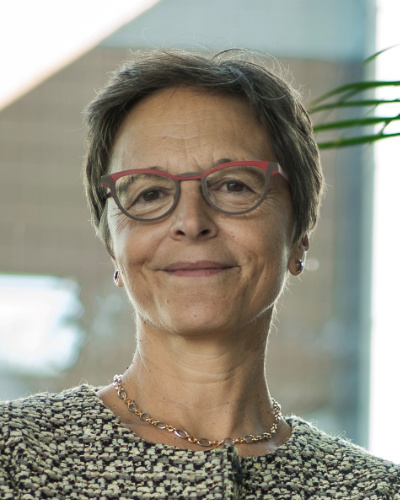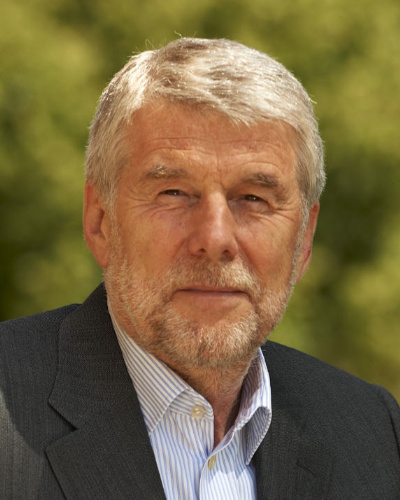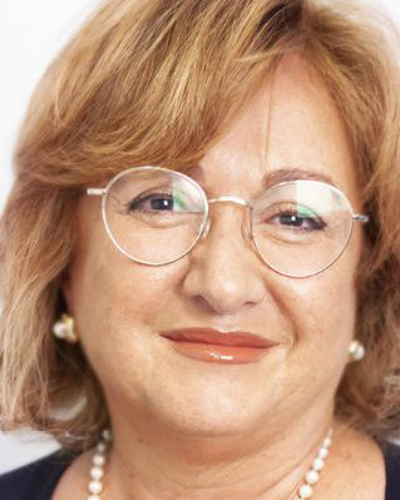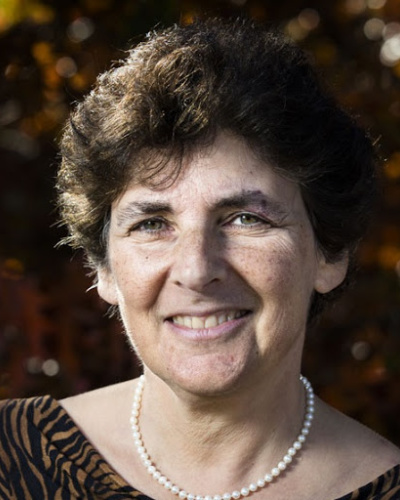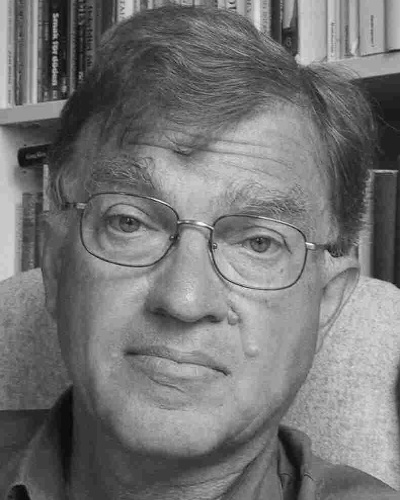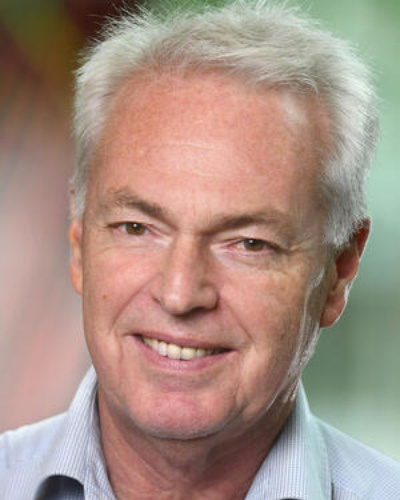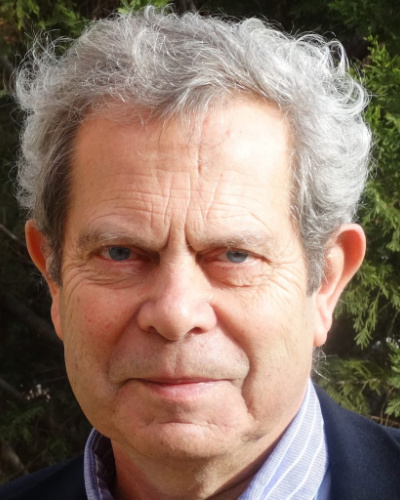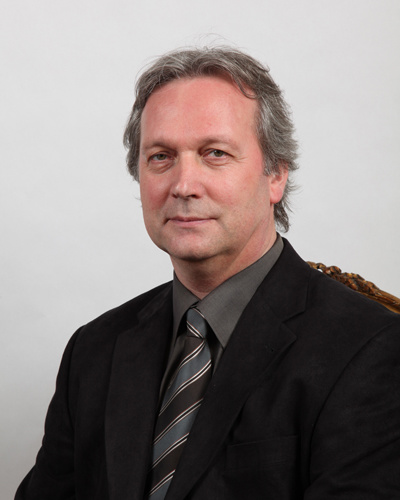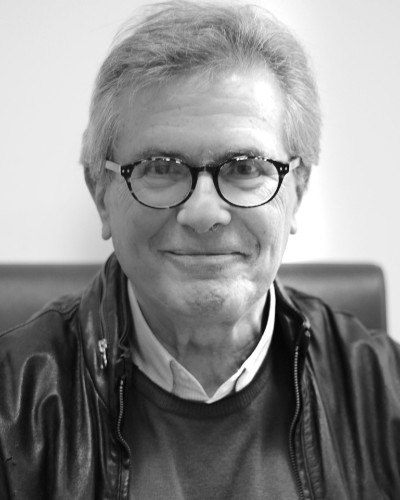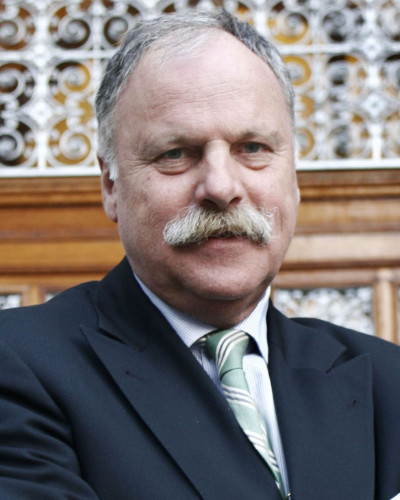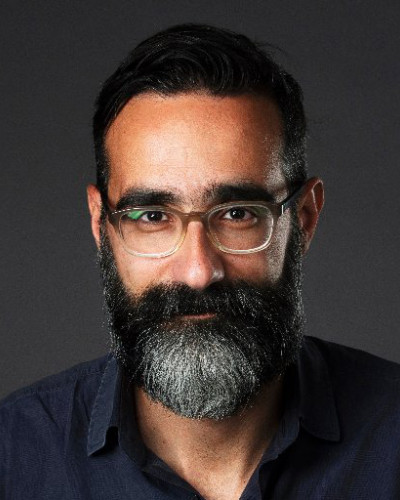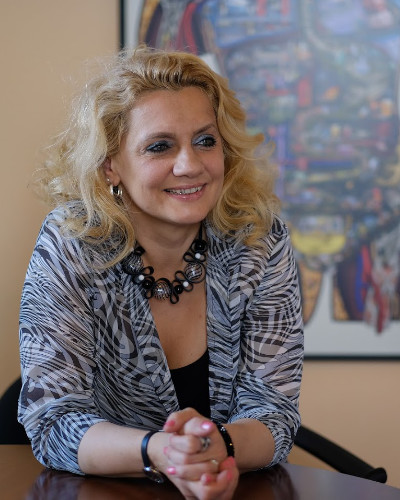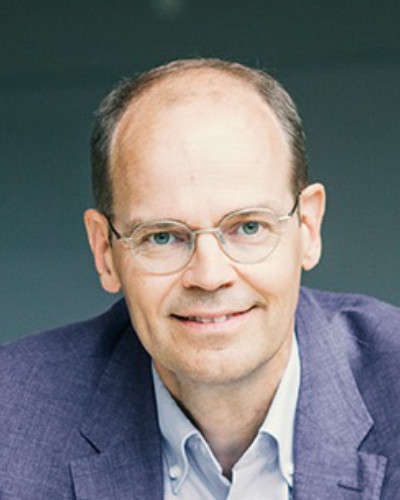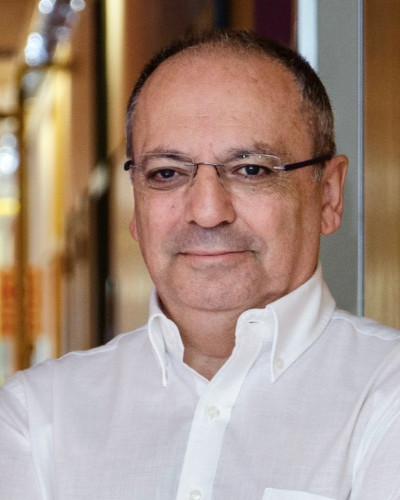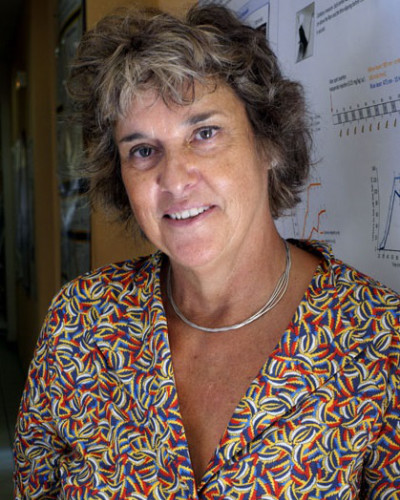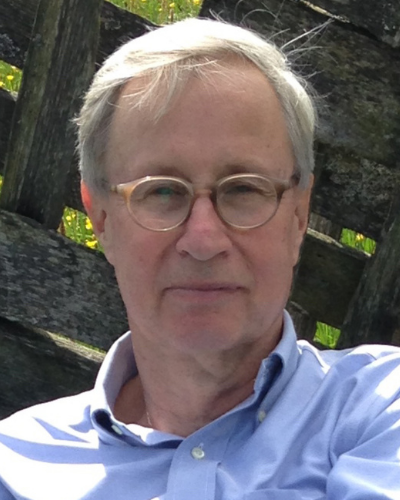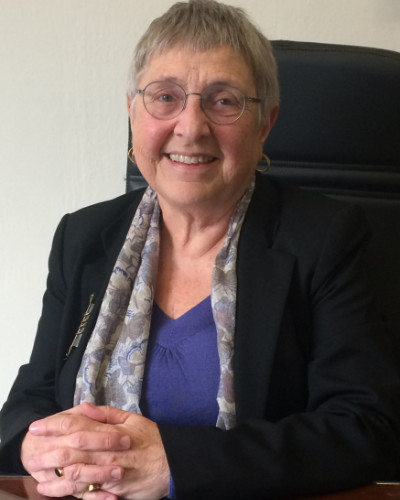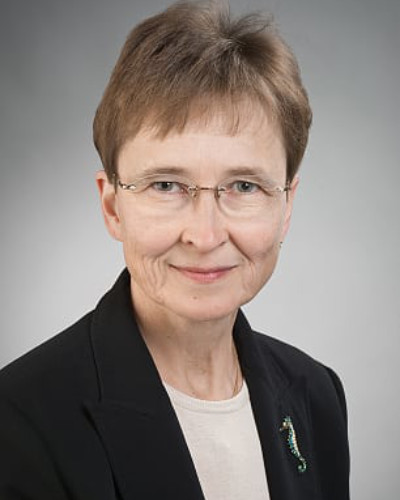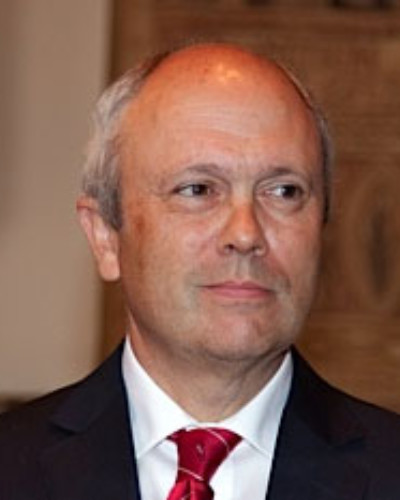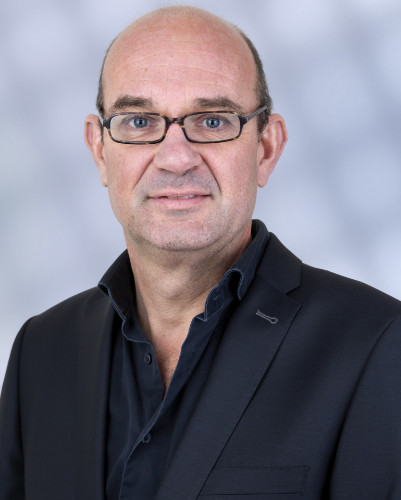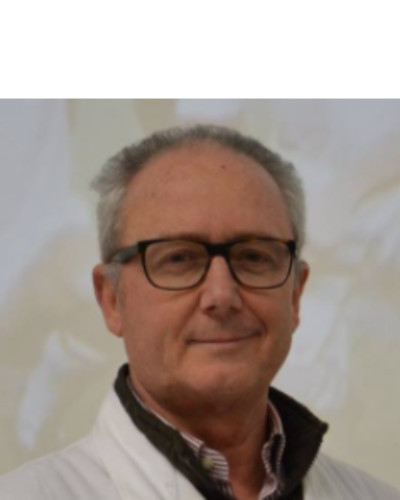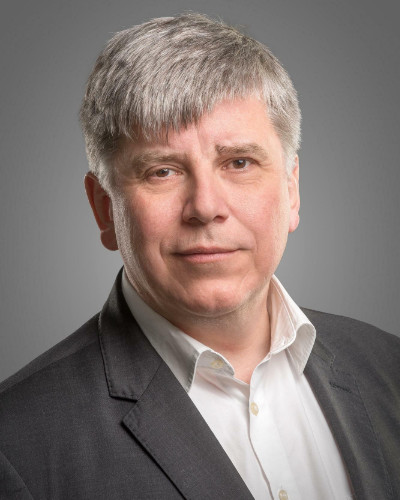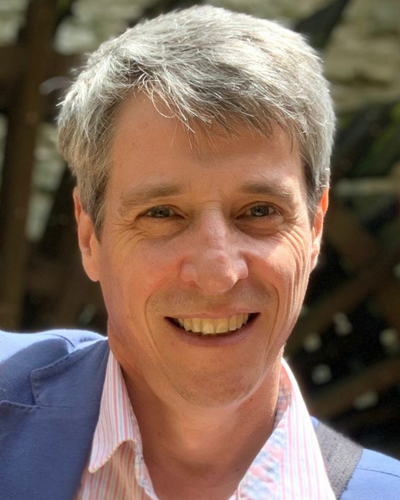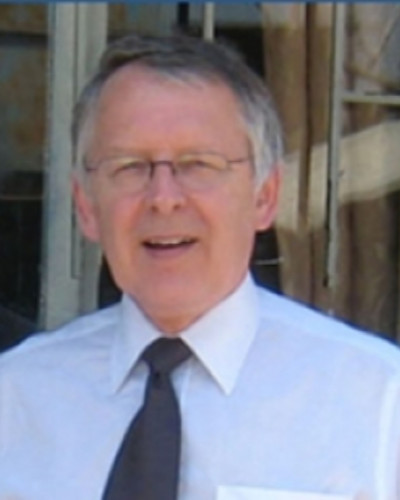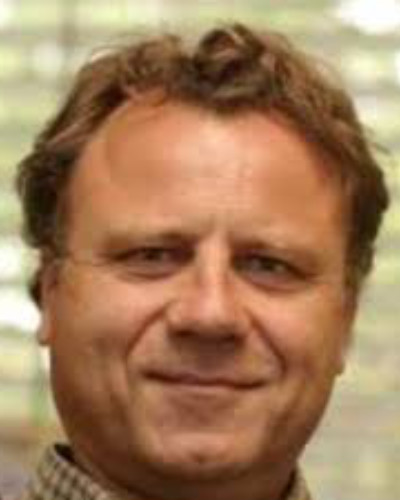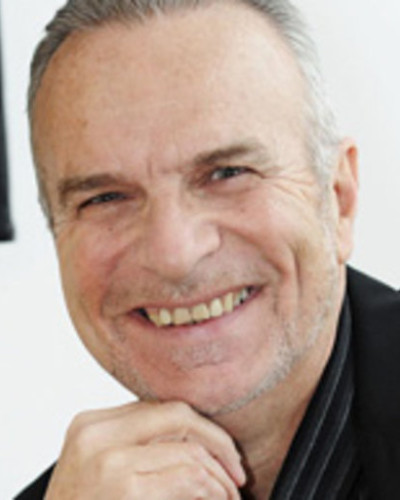FENS leadership
FENS leadership is composed of a Governing Council, the Executive Committee and an Advisory Board.
Composed of representatives of full member societies, and the Executive Committee, the Governing Council is the highest body of FENS.
The Executive Committee comprises the President, the Secretary General, the Treasurer, the chairpersons of the Standing Committees and of the Host Society Committee. It is responsible for the management and administration of the organisation.
The Advisory Board consists of the Past President, the President-elect, the Secretary General-Elect and the Treasurer-elect.

Panayiota Poirazi, Greece
Secretary General
2024-2026
Panayiota Poirazi is a Research Director and head of the Dendrites Lab at the Institute of Molecular Biology and Biotechnology (IMBB) of the Foundation for Research and Technology-Hellas (FORTH). She has a Bachelor’s in Mathematics from the University of Cyprus and a Ph.D. in Biomedical Engineering from the University of Southern California in Los Angeles. She is interested in understanding how dendrites contribute to complex brain functions and use computational modelling approaches, often in conjunction with experiments, to answer this question. Her work has significantly advanced our understanding of how single neurons compute by revealing the power of dendrites in solving difficult problems. She received numerous awards for her academic achievements, including an Einstein Foundation fellowship, the Alexander von Humboldt Wilhelm Bessel Research Award, an ERC Starting Grant and an EMBO YIP award, among others. She is a member of EMBO, a founding member of the Association of ERC Grantees, and was the first Chair of the FENS-Kavli Network of excellence.
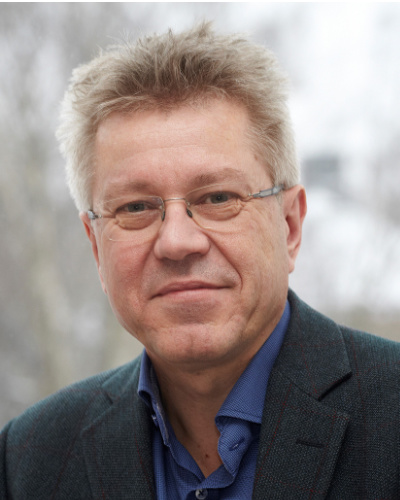
Ole Kiehn, Denmark
FENS President
2024-2026
Ole Kiehn is a currently Professor in Integrative Neuroscience at the Department of Neuroscience, University of Copenhagen, Denmark and Professor in Neurophysiology at the Department of Neuroscience, Karolinska Institutet, Sweden. He received his MD in 1985 and Dr Sci. in 1990 from the University of Copenhagen and was a postdoc at Cornell University, US. He studies the organisation of neuronal circuits that execute movements. His work has identified key elements of spinal circuitries necessary for producing changes in timing and coordination of locomotion and delineated the diversification of brainstem circuits involved in the episodic expression or context-dependent selection of locomotor behaviour. His work demonstrates translational potential in developing therapies for movement disorders caused by trauma or disease to the nervous system. Kiehn’s work has been recognized with the Schellenberg Prize, Kirsten and Freddy Johansen’s preclinical prize, The Brain Prize (2022), Torsten and Ragnar Söderberg’s Professorship, a distinguished professorship award at KI, ERC advanced grants. He is an elected member of EMBO, the Royal Swedish Academy of Science, The Royal Danish Academy of Sciences and Letters, Academia Europea and the Nobel Assembly at Karolinska Institutet (since 2008) and the Nobel Committee for Physiology or Medicine (2014-2019).
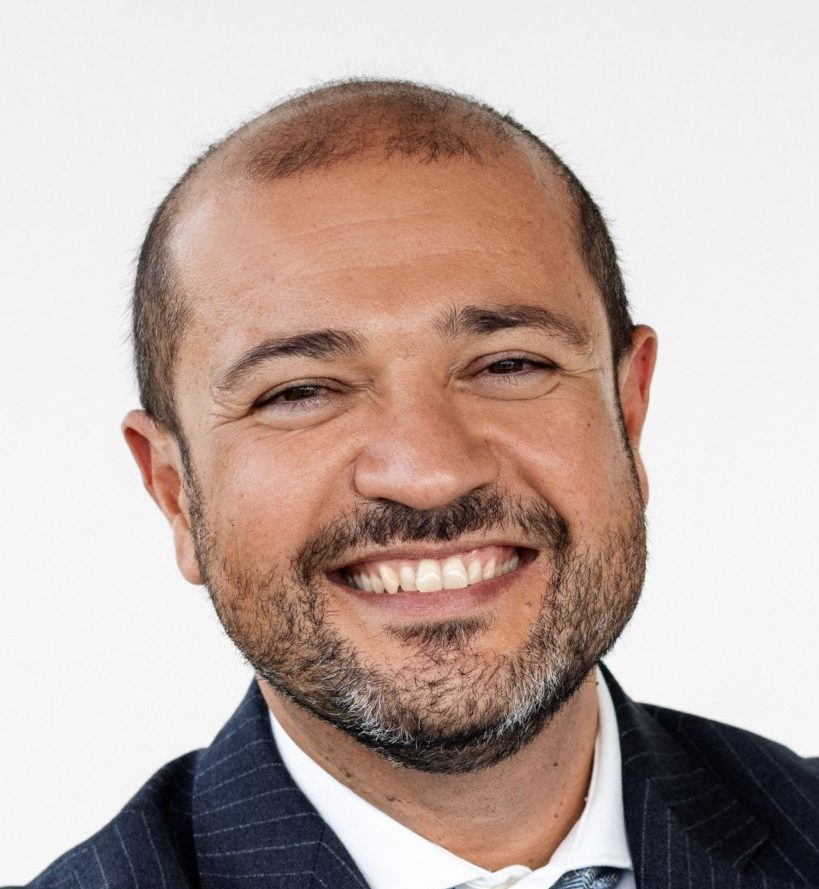
Emre Yaksi, Norway - Turkey
Programme Committee Chair
2024-2026
Throughout his career, Dr Emre Yaksi developed and used optical, electrophysiological and genetic tools for studying neural computation in small genetically tractable animals, namely fruitflies and zebrafish. The unique combination of these novel technologies enables neuroscientists to design innovative experiments to study neural circuits, which were unthinkable only a few years ago. Together with his team, Dr Yaksi investigates how sensory information is represented in the brain and how it interacts with the internal states of the brain associated with adaptive behaviours.
Dr Emre Yaksi received his B.Sc. (2001) in Molecular Biology at Middle East Technical University, Ankara-Turkey. He obtained his PhD (2007) at Max Planck Institute for Medical Research, Heidelberg-Germany. He worked as a post-doctoral fellow (2007-2010) at Harvard Medical School, Boston-USA. He was an assistant professor (2010-2015) at Neuroelectronics Flanders at Catholic University of Leuven, Belgium. Since 2015, Dr Yaksi has been a professor at the Kavli Institute for Systems Neuroscience at the Norwegian University of Science and Technology, Trondheim, Norway. Since 2022, Dr Yaksi has been an adjunct professor at Koç University Hospital, Istanbul, Turkey.

Christina Dalla, Greece
Communication Committee Chair
2024-2026
Dr Christina Dalla is an Associate Professor at the Dep. of Pharmacology, Medical School, National and Kapodistrian University of Athens, past-President of the Hellenic Society for Neurosciences, President of the Hellenic Brain Council and President-elect of the Mediterranean Neuroscience Society. She is also a member of the board of directors of the European Brain Foundation, section-editor at the European Journal of Neuroscience, member of the FENS Communication Committee and member of the Educational Committee of ECNP.
Dr Dalla received her first diploma from the Pharmacy School of the National and Kapodistrian University of Athens in 2000 and continued her studies in Neurosciences in Athens, at the University of Liege in Belgium and at the Rutgers University of New Jersey, USA, with two European Union Marie Curie Fellowships. Her research focuses on sex differences in neuropsychiatric disorders and treatment with a focus on depression. She has received awards and distinctions, such as the “L’Oreal-Unesco” for Greek Women in Science and the European College of Neuropsychopharmacology fellowship award. As a member of the DANA foundation of the Brain, she is actively participating in public activities for brain awareness, such as publishing of books for the public, and has actively contributed to the Erasmus+ grant Share4Brain.

Dirk Schubert, Netherlands
CHET Committee Chair
2024-2026
Dirk Schubert is an Assistant Professor and principal lecturer, leading his research group for “Cellular Neurophysiology” in the Cognitive Neuroscience Department at the RadboudUMC in Nijmegen (Netherlands) since 2013. After obtaining his PhD in Biology at the Heinrich Heine University of Düsseldorf (Germany), doing a postdoc at the C&O Voigt Institute for Brain Research in Düsseldorf and being a guest researcher at the University of Szeged (Hungary), he joined the RadboudUMC in 2006.
His current research group focuses on understanding neuronal network formation and maturation in health and disease (ASD, schizophrenia and epilepsy), with a particular focus on the neuronal circuitries maintaining excitatory/inhibitory balance in rodent ex vivo models as well as human IPSC derived neuronal networks (“human neurological disorders in a dish”).
As principal lecturer, he coordinates and teaches courses across faculties at the RadboudUMC (Medicine and Biomedical Science curriculum) and the Radboud University (Biology and Molecular Life Sciences curriculum) at bachelor’s and master’s levels. Besides being representative of the RadboudUMC Biomedical Science Master specialisation in Medical Neuroscience at NENS, he is strongly involved in various teaching management teams that shape the general bachelor and master curricula at the RadboudUMC.
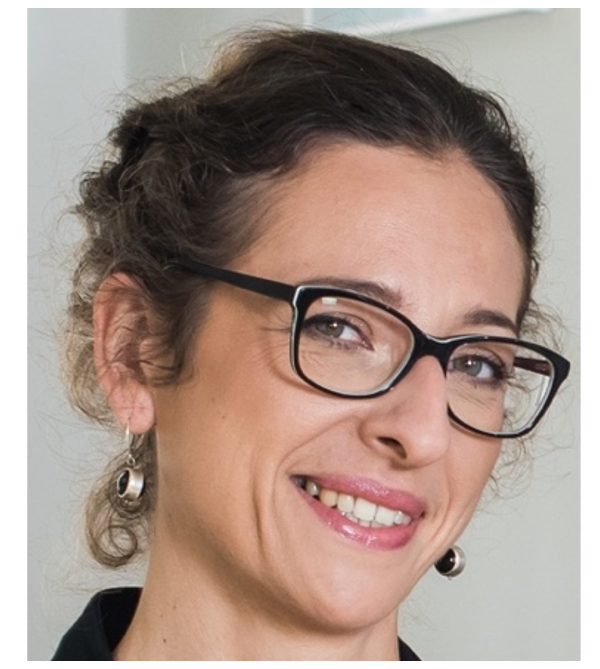
Ewelina Anna Knapska, Poland
Tresurer-Elect
2024-2026
Prof. Ewelina Anna Knaspka’s research focuses on understanding how the brain processes social interactions and cues. Early in her career, she made pioneering discoveries about how rodents share and respond to each other’s emotions, sparking new investigations into how emotions are transferred socially and affect learning. Her work has shown that perceiving negative emotions in others helps animals assess danger and activates specific brain circuits, including the amygdala, in both rats and humans. Recently, she has found evidence of emotions being transferred between different species, such as from humans to rats, which activate the amygdala circuits.
Additionally, she is dedicated to developing automated practical behavioural tests for reliably assessing social behaviour. Her work led to the creation of the Eco-HAB system, which allows researchers to observe and track different aspects of social behaviour in mice in naturalistic environments over extended periods.
By combining automated systems for behavioural assessment with methods of recording and manipulating brain activity, she investigates mouse models of social behaviour impairments. Her research on the central amygdala has revealed the role of matrix metalloproteinase 9 (MMP-9) in reward motivation and learning, providing potential insights into treating conditions like Fragile X syndrome. Her recent studies focus on the mechanisms of social impairments in tuberous sclerosis complex, both in patients and in mouse models, and the possibility of harnessing central amygdala plasticity to treat motivation disorders.
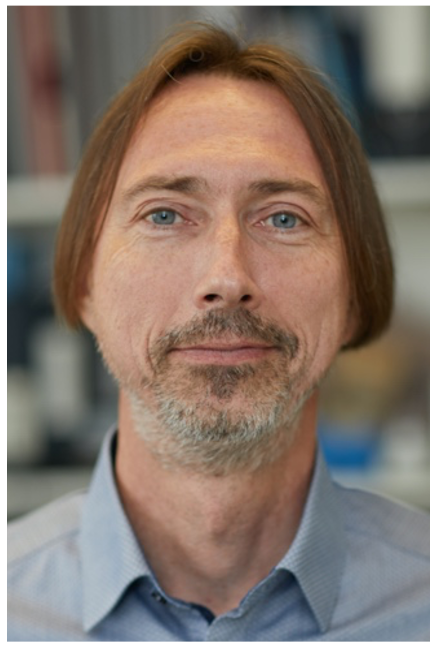
Mathias V. Schmidt, Germany
Secretary General-Elect
2024-2026
Dr Schmidt studied Biology at the University of Bayreuth in Germany. He completed his Master’s thesis with Seymour Levine at the University of Delaware, where he began his research on the development of the stress system in rodents. He then moved to the Netherlands, where he obtained his PhD under the guidance of Ron de Kloet. After completing his PhD in 2004, Dr Schmidt continued his scientific work as a Postdoc at the Max Planck Institute of Psychiatry in Munich, where he began investigating the molecular mechanisms underlying stress vulnerability and resilience. In 2010, he received his habilitation at Ludwig Maximilians University and, in the same year, became research group leader of the “Neurobiology of Stress Resilience” group at the Max Planck Institute of Psychiatry.
Dr Schmidt has received numerous awards, including the Ernst und Berta Scharrer Award from the Deutsche Gesellschaft für Endokrinologie and the BioM M4 award from the Bavarian State Ministry. He served as president of the European Brain and Behaviour Society from 2019 to 2021. Dr Schmidt is an active member of the scientific community, serving in editorial roles for the European Journal of Neuroscience, Stress, and Neurobiology of Stress. He has received numerous research grants from national and international agencies. Since 2017, he has chaired and organised the Munich Winter Conference on Stress series.

Paola Bovolenta, Spain
FENS President-Elect
2024 - 2026
Prof. Paola Bovolenta is a distinguished Research Professor at the Agencia Estatal Consejo Superior de Investigación Científicas (CSIC), serving as Director of the Centro de Biología Molecular Severo Ochoa (CBM, CSIC-UAM) and leading the U709 unit of the CIBER for Rare Diseases. Her academic journey began with a PhD from New York University, School of Medicine, under the guidance of Prof. CA Mason. She pursued postdoctoral research at Columbia University’s Center for Neurobiology and Behavior with Prof. J. Dodd, followed by a tenure at the Cajal Institute, CSIC, Madrid, under Prof. M. Nieto-Sampedro.
In 1996, she founded her research group at the Cajal Institute, later assuming the Chair of its Molecular, Cellular, and Developmental Biology Department in 2005. Recognised for her expertise, she co-established the CIBER for Rare Disease in 2006, supported by the Instituto de Salud Carlos III.
Transitioning in early 2011, she relocated her lab to CBM, taking charge of the Tissue and Organ Homeostasis Program and subsequently assuming the role of CBM Director in 2023. Her professional trajectory includes training at DIBIT in Milan and the Ecole Normale Supérieure in Paris. She served as CSIC’s Biology and Biomedicine Coordinator from 2008 to 2014, overseeing 22 research centres in Spain.
Her leadership extends internationally through roles on the Scientific Council of the European Research Council (ERC) and advisory boards such as EMBO Policy Advisory Board and ERA-NET Neuron’s Scientific Advisory Board. She also contributes as Senior Editor at EJN and other editorial boards, fostering international collaboration in research and policy.

Irene Tracey, United Kingdom
FENS Past President
2022-2024
Professor Irene Tracey is Vice Chancellor at the University of Oxford and was FENS President during 2022 – 2024. She is a former Warden of Merton College, Oxford, as well as Professor of Anaesthetic Neuroscience and Head of the Nuffield Department of Clinical Neurosciences. She did her undergraduate and graduate studies in Biochemistry at the University of Oxford, where she focused her research on the early use of magnetic resonance imaging methods to study disease mechanisms in humans. Subsequent to a postdoctoral fellowship at Harvard, she was a founding member of the Oxford Centre for Functional Magnetic Resonance Imaging of the Brain and was its director from 2005 until 2015.
Alongside senior leadership roles within the University, Irene has served and continues to serve on many national and international committees, such as the International Association for the Study of Pain (IASP), British Neuroscience Association, the Lundbeck Brain Prize Committee and by appointment of the government, the UK Medical Research Council.
She is a passionate advocate for women in science and is involved in several mentorship schemes. Over the past 25 years, her multidisciplinary research team has contributed to a better understanding of pain perception, pain relief and nociceptive processing within the injured and non-injured human central nervous system using advanced neuroimaging techniques and novel paradigm designs. They have also been investigating the neural basis of altered states of consciousness induced by anaesthetic agents.



